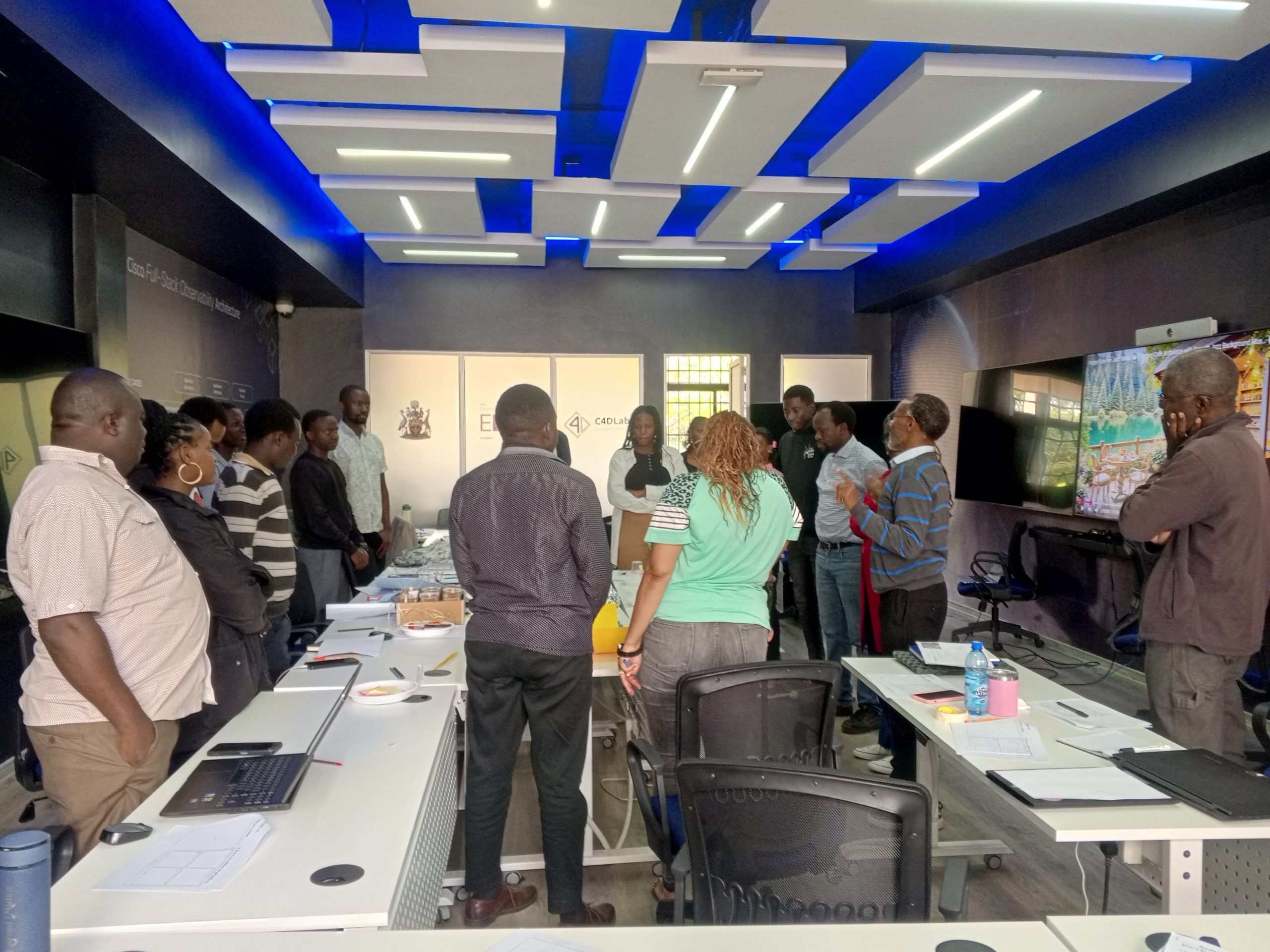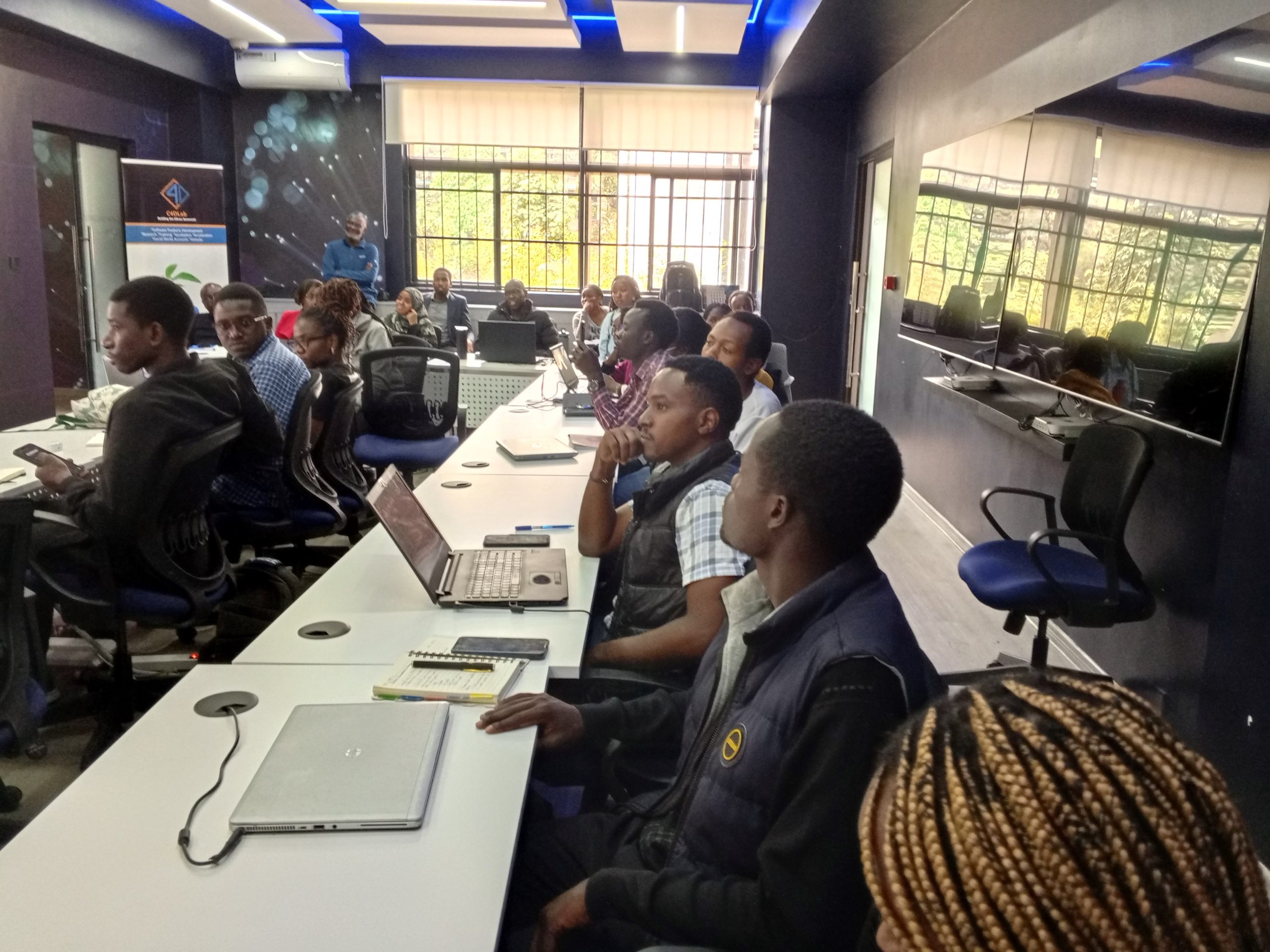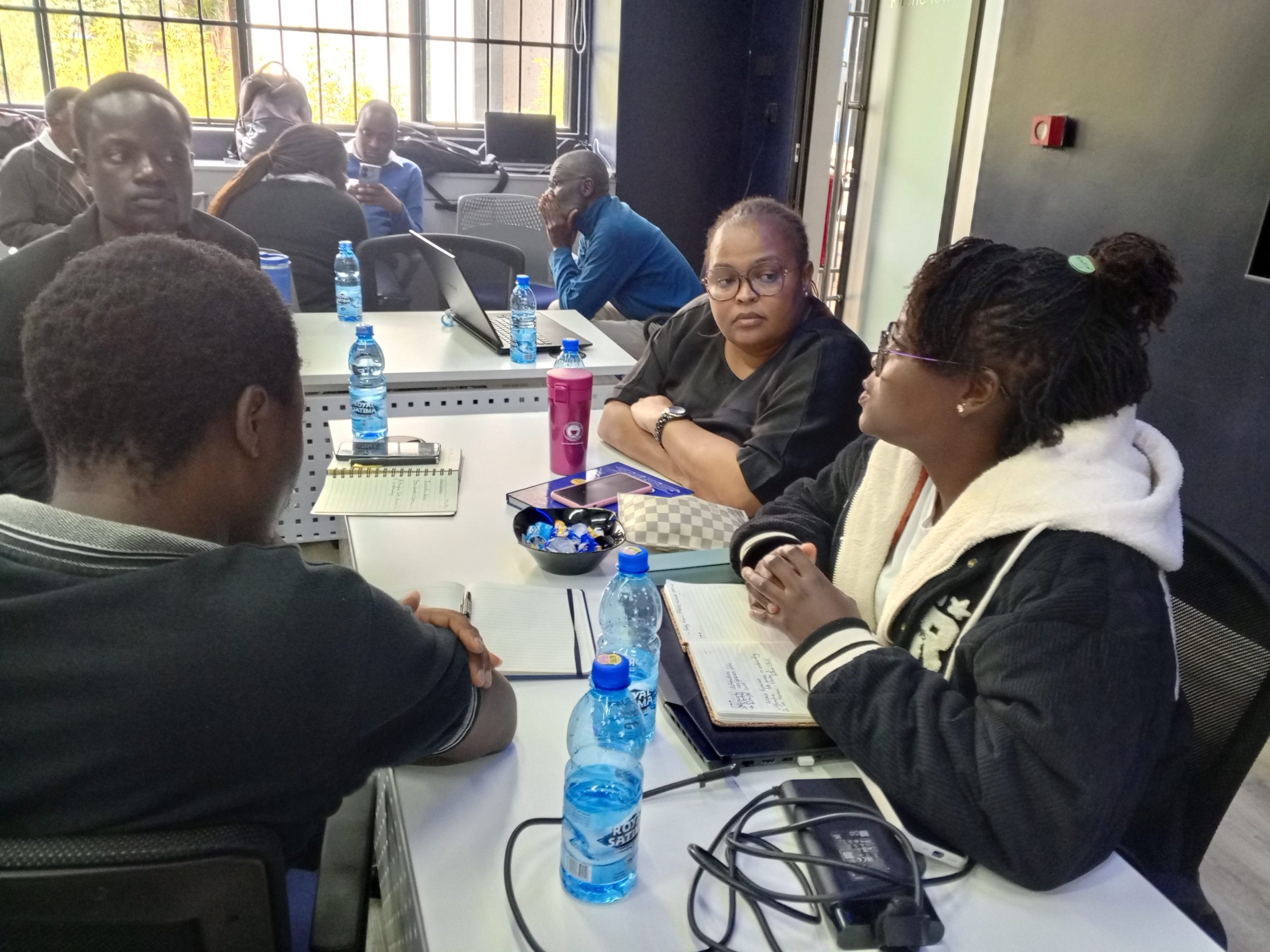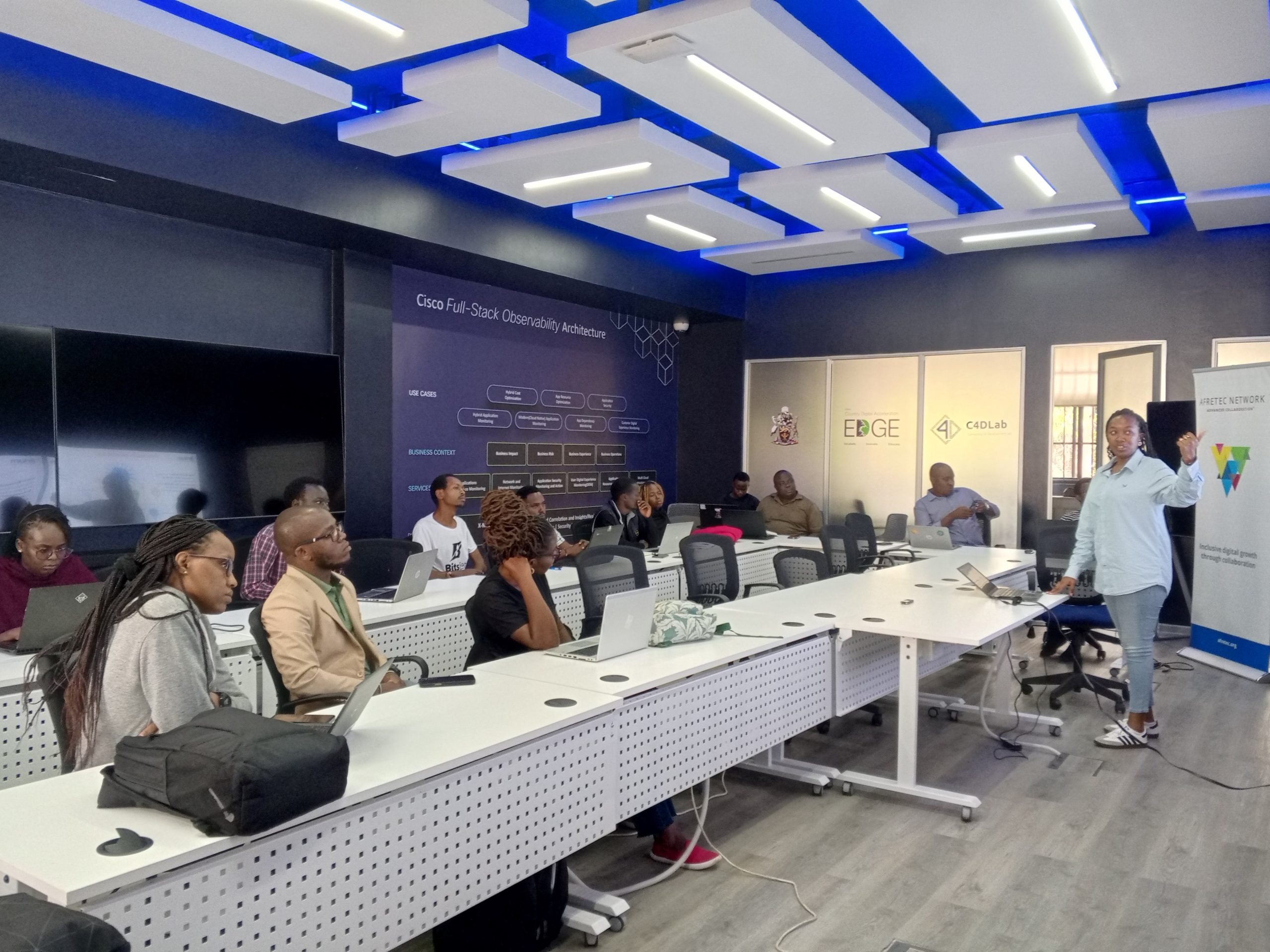On 12 June 2025, the University of Nairobi Innovation Fellows gathered in person at C4DLab for their latest session, marking a crucial phase in their three-month programme. Tasked with solving industry-sourced challenges from Britam and the Tana and Athi Rivers Development Authority (TARDA), the fellows are applying design thinking principles to develop innovative solutions. With the foundational bootcamp behind them, they are now preparing for fieldwork—conducting interviews with key stakeholders to gather real-world insights.
One of the highlights of the bootcamp was the Spaghetti Tower Challenge, which illustrated the importance of iteration and rapid prototyping. Using simple materials—spaghetti, tape, string, and a marshmallow—the fellows built towers, reinforcing the principle that innovation thrives on experimentation, learning from failure, and adapting quickly. This hands-on approach set the tone for the challenges ahead, where structured problem-solving and creative thinking will be vital.
Beyond practical exercises, the session emphasized a shift in mindset for innovation. Fellows learned that action and testing are more valuable than excessive planning. Facilitators encouraged them to embrace failure as part of the learning process, citing real-world examples like SpaceX’s repeated experimentation with rockets and the rise of electric vehicles. This iterative approach mirrors what the fellows will apply in the field as they collect data and refine their solutions.
A key theme of the bootcamp was the bias towards action, which distinguishes successful innovators from those who hesitate. Teams that quickly experimented had tangible results, while those that spent too much time planning struggled to make progress. Now, as the fellows engage with Britam and TARDA stakeholders, they will use this principle to gather firsthand perspectives on challenges like claims authenticity in the insurance sector, and flooding and drought issues in river basin management. Understanding these problemsdirectly from those affected will guide them in crafting solutions that truly address industry needs.
Under the guidance of Dr. Sam Ruhiu, Mr. Peter Okech, and Eng. Ernest Kimani, the fellows are now transitioning from conceptual exercises to real-world problem-solving. Their interviews will form the basis for thoughtful innovations, ensuring their work is grounded in practical insights. By blending structured research, creative problem-solving, and iterative development, they are set to tackle these challenges with confidence, shaping solutions that could have a lasting industry impact.
From Ideation to Impact: Innovation Fellows Embrace Design Thinking in Real-World Problem Solving
On 12 June 2025, the University of Nairobi Innovation Fellows gathered in person at C4DLab for their latest session, marking…




